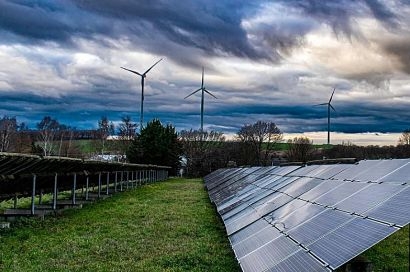
The newsletter delivers a number of key messages, including:
Significant acceleration of the transition to a decarbonised energy system can help to address energy security and affordability concerns while also delivering Net Zero milestones. Overall end consumer demand will reduce by over 40 percent by 2035 while levelised costs of wind and solar are much lower than unabated natural gas projects commissioning in 2025.
Regional diversity is increasing and this must be reflected in strategies and policies for individuals and the country. A “one size fits all” approach to decarbonisation of residential heat is not optimal due to differences in consumer preferences, availability of resources and proximity to energy infrastructure. A national strategy should deliver targeted solutions and investment at a more regional level in order to utilise local knowledge and improve affordability.
Each region has different levels of renewable resources and different domestic, industrial and commercial demands. Understanding the cause and impact of these differences is critical to decarbonisation of the entire UK power sector and wider economy. An example is Scotland, which has high levels of wind capacity but relatively low demand, setting a target to reach Net Zero by 2045.
Consumer behaviour is critical to decarbonisation. 84 percent of people said they were concerned about climate change in the BEIS Public Attitudes Tracker earlier this year, while 41 percent said they were very concerned. 82 percent of people said they had given a lot of thought to saving energy in the home. Better understanding of regional trends depends on data being made available to innovators while ensuring consumer protection is maintained. Sales of electric cars are accelerating, but further action is required on the government’s target for no new sales of fossil fuel vehicles by 2030. Further focus is needed on upfront costs of EVs and the availability of charging infrastructure.
The whole energy system needs strategic investment in order to keep pace with Net Zero ambitions and to strengthen energy security.
The UK electricity network will need to be rapidly transformed over forthcoming decades as the system changes to a more decentralised system with more low carbon sources. This means that coordination will be essential at all levels and across all technologies.
For additional information:

